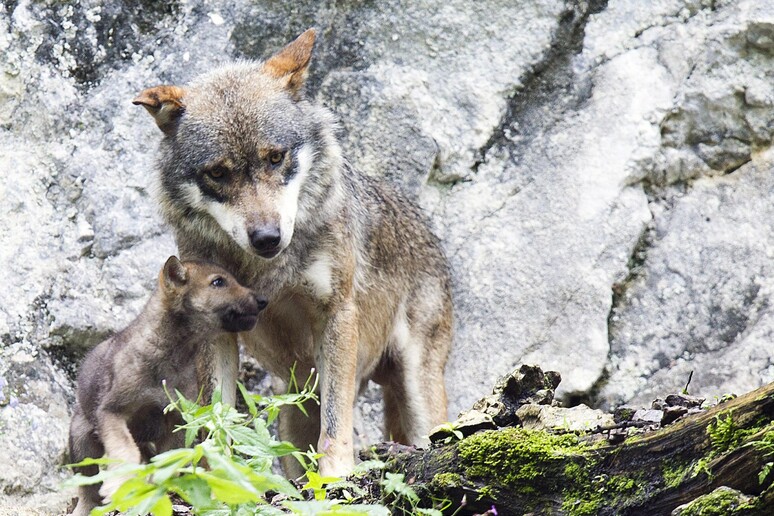Six wolf cubs were born at the Men
and Wolves Center in the Alpine village of Entracque in Cuneo
province, national park officials said Tuesday.
This is the first litter born to Hope and Albert, two
Italian wolves living in a six-hectare wildlife reserve in the
Maritime Alps Nature Park.
The Center also hosts she-wolves Emilia, Ormea, and Gina,
who grew up in the wild and were rescued after being run over by
cars.
The cubs have been vetted and micro-chipped, and park
officials may issue a call for the public to suggest names for
them.
The newcomers belong to the Italian wolf subspecies (Canis
lupus italicus), a grey wolf that is native to the Italian
Peninsula.
It inhabits the mountainous areas of the Apennines and the
western Alps, where it made a comeback in the 1990s after going
extinct there in the early 1900s.
Although it is a protected species, hunters, breeders and
farmers still kill these wolves in the belief that they threaten
livestock.
In fact, the Italian wolf diet is based on wild herbivores
such as deer, which it hunts in small packs, using very complex
and efficient techniques.
There are currently 20-25 Italian wolves living in the wild
in the Maritime Alps, according to park officials.
ALL RIGHTS RESERVED © Copyright ANSA











